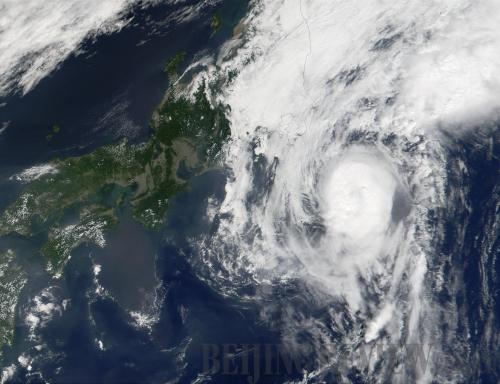|
 |
|
WHIRLPOOL: Typhoon Vipa approaches Japan, September 20, 2001 |
It is often said that humans know more about outer space than about the vast depths of the oceans. Nowadays, with the increased urgency of climate science, unlocking the mysteries of the oceans has taken on new importance.
An international research project has been launched in the eastern Chinese city of Qingdao to study the Northwest Pacific Ocean. In a classic example of international scientific cooperation, 19 institutions from eight countries will participate in the Northwestern Pacific Ocean Circulation and Climate Experiment (NPOCE).
Launched in May, the NPOCE includes institutions from Australia, China, Germany, Indonesia, Japan, Korea, the Philippines and the United States.
"Although significant advances have been made over the past several decades, our understanding of the Northwest Pacific Ocean's circulations and their role in regional to global climate change remains incomplete," says Dr. Song Dan, head of the NPOCE Office.
"For example, it's much harder to send people, or even just equipment, several thousand meters underneath the sea surface than to send them tens of thousands of meters above [Earth]," he says. "The extremely high pressure, darkness and undeveloped remote communication techniques are severe problems that limit our research and understanding of the deep ocean."
"Due to lack of direct in situ observations, our knowledge of the ocean is mostly localized to the upper ocean above the main thermocline. Most of our understanding of the deep ocean is based on theoretical analysis and numerical simulations, together with limited observations from Argo floats, some cruises and recently, mooring arrays."
|